The True Story of the Moment Princess Elizabeth Became Queen
- Oops!Something went wrong.Please try again later.
- Oops!Something went wrong.Please try again later.
- Oops!Something went wrong.Please try again later.
In the early morning hours of February 6, 1952, the Princess Elizabeth Alexandra Mary of Windsor, 25, heiress presumptive to the British Throne, became Queen Elizabeth II, by the Grace of God, Queen of the United Kingdom of Great Britain and Northern Ireland and of her other Realms and Territories, Head of the Commonwealth, Defender of the Faith.
King George VI had died in his sleep of a heart attack during the night. The King’s body was discovered at 7:30 that morning by his valet.
Only a day earlier, the King had been out in an unusually brilliant winter sunshine, enjoying his favorite sport, shooting. He had bagged nine hares and one pigeon. His last words to his companions were: “Well, it’s been a very good day’s sport, gentlemen!”
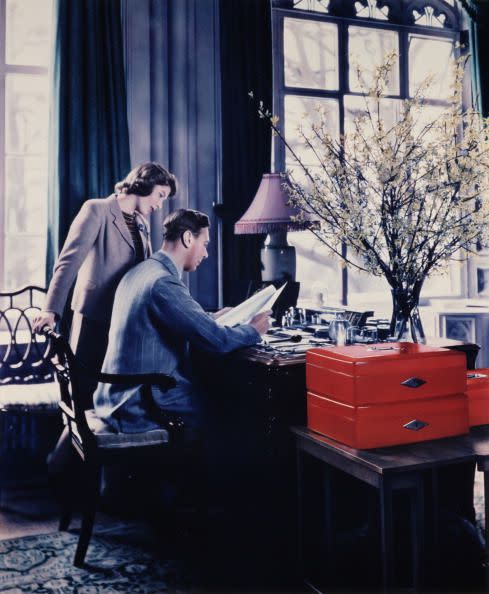
At 11:45 A.M., London time, on the day of the King’s death, the heiress presumptive was at Sagana Lodge, a farm she and her husband, Prince Philip, the Duke of Edinburgh, had been given as a wedding gift by the colonial government of Kenya. It was the first leg of a Commonwealth tour she had begun only days earlier, standing in for her ailing father.
Confusion reigned in the immediate hours after the King’s death. Purportedly, a telegram was sent from Buckingham Palace to Kenya, informing the royal party of the King’s death.
The heiress to the Throne actually learned that she had become Queen, however, after Martin Charteris, then attached to her Household and traveling with the royal couple in Kenya, heard a report on the radio and relayed the news to Michael Parker, a close friend of Prince Philip’s who was in the royal entourage. Parker informed Prince Philip of the King’s death, and he in turn broke the news to his wife.
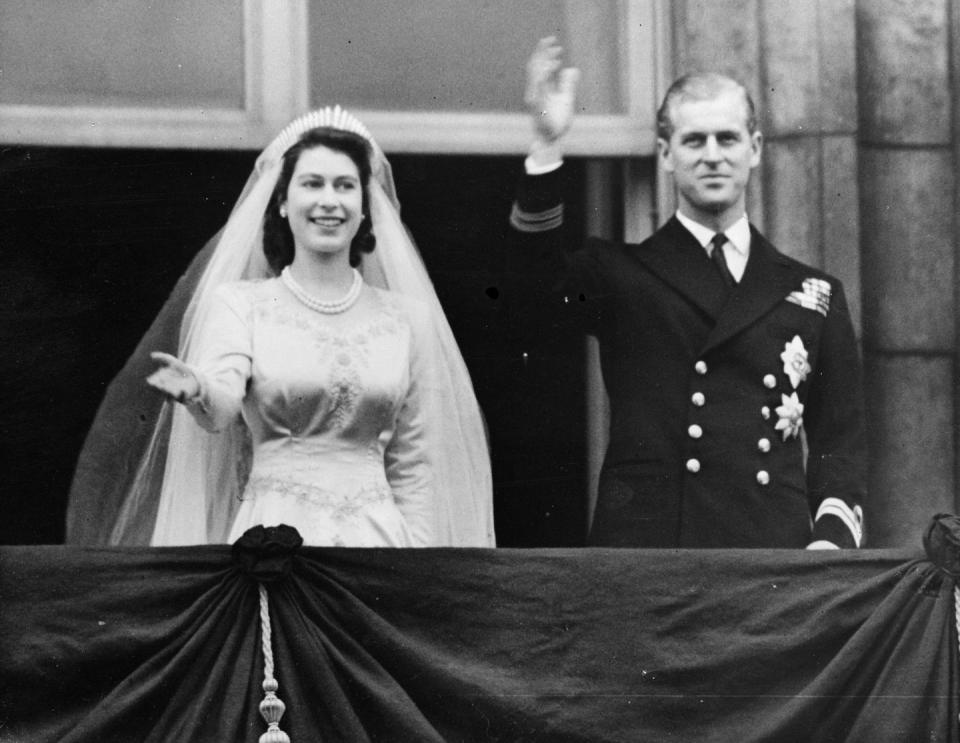
Lieutenant Commander John Michael Avison Parker (1920–2001), CVO, AM, equerry-in-waiting to Princess Elizabeth and the Duke of Edinburgh, 1947–52; private secretary to the Duke of Edinburgh, 1947–57: We’d been up the tree, and we’d seen a great herd of elephants and a lot of animals. At the dawn, I discovered a ladder going up to the top of the tree, where you could look over the jungle at Mount Kenya.
Prince Philip was asleep and she was looking out there, and I said: “Ma’am, would you like to come and look at the view?” So up she came with me and we had a look at the dawn of that terrible day, out there in Africa. But what a beautiful dawn it was; it was a fantastic sight!
We went down, and we all went on to Sagana Lodge, which was where we were staying. We had a day or so to adjust, and rest, and do things, before we went on to Mombasa, where we were going aboard a ship and on to Australia.
Well, Prince Philip went to sleep in his little room that was off to one side. The Princess was at her desk, writing thank-you letters, and some family letters—and to the King, I suppose—because we were going to be out of reach for a while and this was the last mail to go.
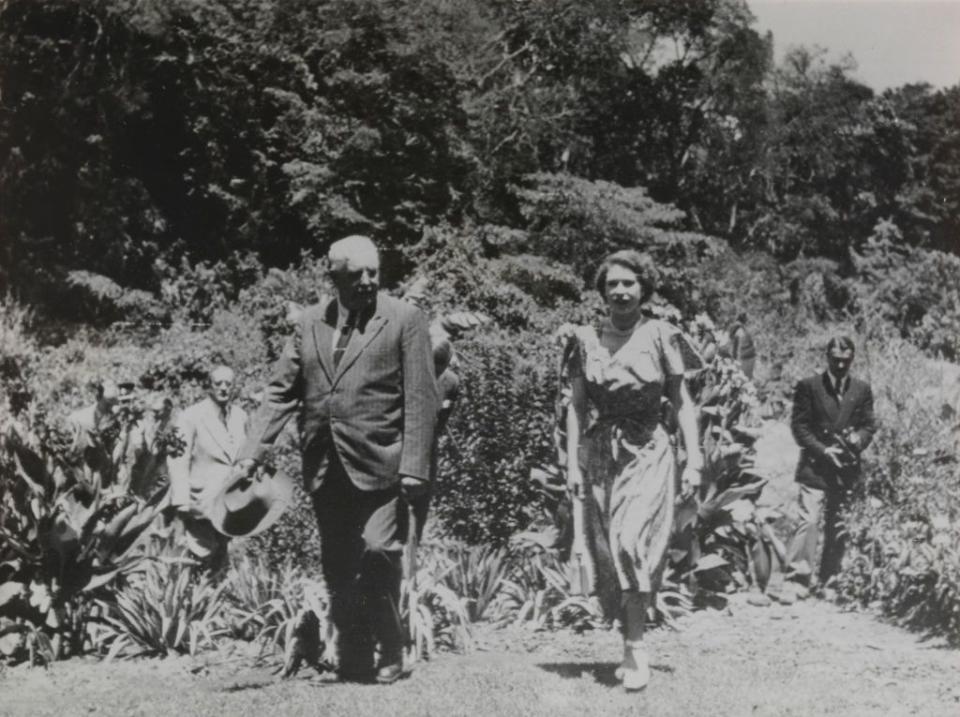
Then the phone rang. And Martin Charteris, the Princess’s private secretary, said: “Mike, there’s a ghastly rumor going round that the King has died.” He was at a hotel in Nyeri, amongst all the press people there, and they were saying that they had heard.
So I said: “Well, Martin, that’s frightening, but I cannot do a thing on a rumor like that. I just won’t do anything.” And he said: “That’s just as well, but stand by.”
Down went the phone. I saw a radio on the shelf above me. There was a door open to where the Princess was sitting, so I shut the door and switched on the radio and hunted about for the BBC, and then I could hear the bells of Big Ben ringing, very slowly.
I thought: Ye gods. And my hair stood up a little bit more. Then I heard the announcement. And that was that. I whizzed round the outside of the house, to the veranda, and in to where Prince Philip was sleeping, and told him.
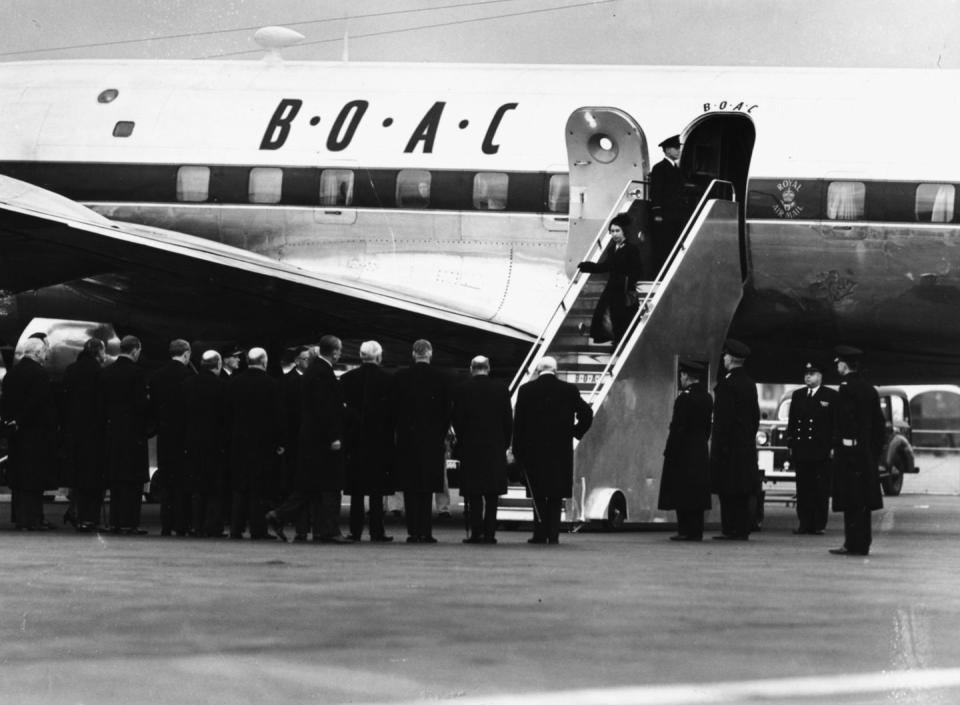
He had just woken up from a heavy sleep and an Australian bloke comes in and tells him that his wife’s father, the King, has just died, and she’s become Queen. Can you imagine the impact?
First of all, there was his complete concern, his consideration for her as a human being, and secondly, the implications of the fact that she was becoming the Queen and he is her husband. So a whole myriad of thoughts must have gone roaring through his brain.
His first reaction was almost as though a huge wave had hit him. And he just stood there, silently, and thought. It wasn’t a moment when I should talk, so I just stood there too. Both of us were thinking the same thoughts, separately.
And then he straightened himself up and went in to tell the Queen. She was sitting at her desk, and he told her there. And then she got up and he put his arm around her and took her out onto the lawn. And they walked up and down the lawn together, very close, and she was weeping desperately for the loss of her father.
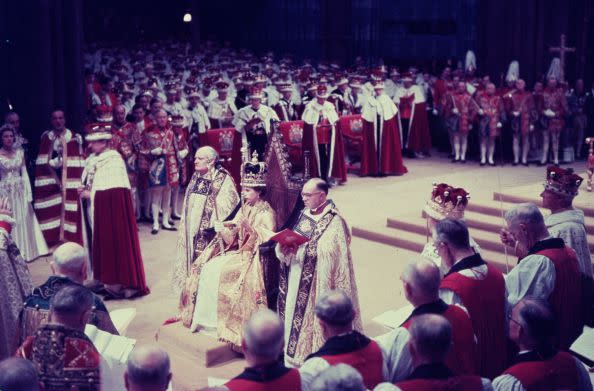
She did a bit of grieving like that, which was a good thing too. And then she straightened up and she went in, to the desk she had been working at, and started to send all these telegrams off, round the Commonwealth and to other countries, like the United States.
And Philip was right behind her, sitting there. His presence was a huge, huge piece of confidence for her. And he never left her; while she was working with Charteris and everybody else, he was there. One of the remarkable things was that he didn’t interfere with me making all the arrangements. Some people would like to get their hands on. But he knew we would do the job of getting them home, so he didn’t bother.
Lady Pamela Hicks, daughter to Edwina, Countess Mountbatten of Burma and Lord Louis Mountbatten, 1st Earl of Burma, cousin to the Duke of Edinburgh: It was the most appalling shock to them. She was only 25 and he was only barely 30. This really devastated their lives, actually, for a married couple at that moment.
When you think that she went up that ladder onto that platform as a Princess, and she came down as the Queen. They had had a marvelous night, she with her camera, filming all the animals, and looking—just the kind of thing they loved doing—and then to come down again into the little fishing lodge, to be told the news. It was the most appalling shock.
When Mike Parker received the telephone call from Martin Charteris and told Prince Philip, he just covered his face with his newspaper and remained in shock for about five minutes or so, taking in the full extent of what it meant—that his whole career in the Navy would go.
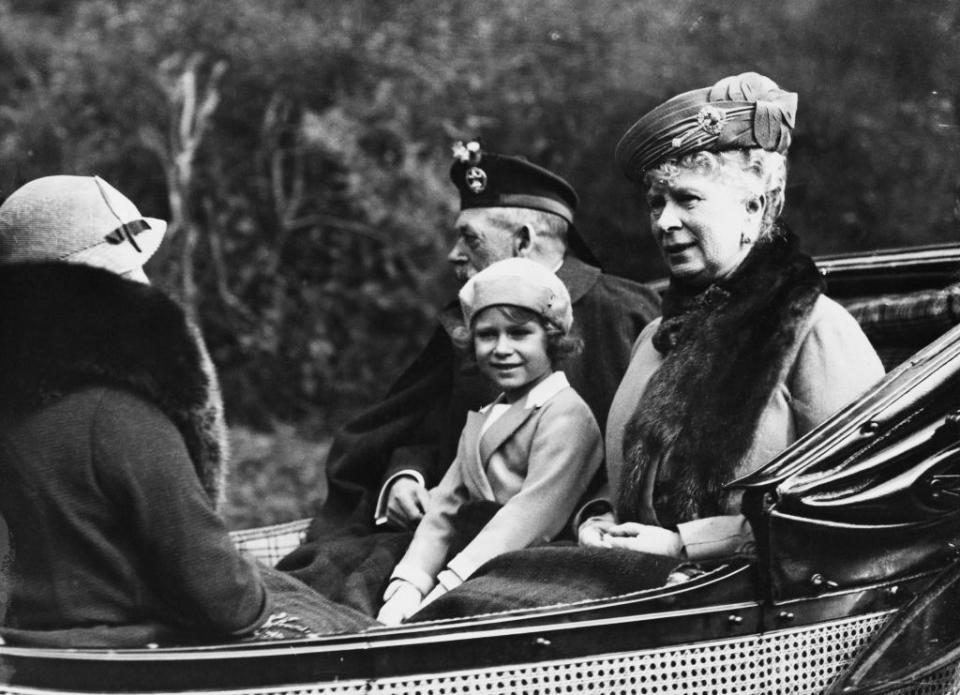
It was very much a conventional British household to the extent that he was very much the man of the family: he took the decisions; she looked after him in their private life. Obviously, as Princess, she had a lot of official things to do. But they were still able, with those two small children, to have a family group where he could be the pater familias and have authority. He was very, very accepting. But she was very careful to let him take part in things and relied on him enormously.
But think of this extremely active and enthusiastic young man who suddenly finds his whole life is going to be taken away from him—he’ll be walking two steps behind his wife—and probably thinking he will have to become a yes man for the rest of his life.
She came back into this tiny little house and—it was a very typical reaction actually—she said: “Oh, I’m so sorry, it means we’ve all got to go home, I’m afraid.”
And one was so overcome with sorrow for her that the only thing one could think of was giving her a kiss and a hug. And then I remember thinking: My God! Of course it means she’s the Queen!
There was no time then, actually, for her, if she had wanted to, to grieve, which, perhaps, was a good thing. She was so busy because Martin Charteris arrived and they had to let all the prime ministers, and governors general of Australia, New Zealand, and all the rest of the Commonwealth know that the tour was canceled because, of course, we’d been right at the beginning of it. So all these telegrams had to go off. Martin Charteris didn’t even know what name she was going to call herself as Queen—things like that. There was so much that she had to do.
Extracted from Queen Elizabeth II: An Oral History by Gerald and Deborah Strober. Published by Pegasus Books. ©Gerald and Deborah Strober
You Might Also Like

